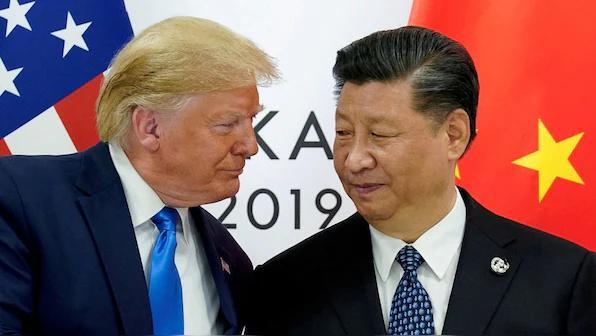
China Refuses to Join Denuclearisation Talks with US & Russia
In a recent development, China has rejected the call by US President Donald Trump to join trilateral denuclearisation talks with the US and Russia. The Chinese Foreign Ministry Spokesperson, Guo Jiakun, stated that the expectation of China’s participation in such talks was “neither reasonable nor realistic”. This decision has sent shockwaves across the international community, with many wondering what the implications of this move might be for global security.
According to reports, President Trump had previously called for China to join the discussions aimed at reducing nuclear arsenals, citing the country’s growing military capabilities. However, China has rejected this proposal, citing significant differences in its military capabilities compared to those of the US and Russia.
In a statement, Guo Jiakun said, “China and the US are not at the same level at all in terms of nuclear capabilities. The expectation that China should participate in trilateral nuclear talks with the US and Russia is neither reasonable nor realistic.”
This decision by China has sparked concerns about the potential for nuclear proliferation and the stability of the global nuclear balance. The US and Russia have long been engaged in a nuclear arms race, with both countries possessing significant stockpiles of nuclear weapons. China, on the other hand, has a smaller but growing nuclear arsenal.
The Chinese government’s decision to reject the invitation to join the denuclearisation talks is seen as a significant rebuff to the US and Russia. It is unclear at this point what the implications of this move might be for global security, but it is likely to have significant consequences for the balance of power in the Asia-Pacific region.
The refusal by China to participate in the talks has also raised questions about the country’s commitment to disarmament and non-proliferation. China has long been a key player in international efforts to reduce the threat of nuclear war, and its decision to reject the invitation to join the talks is seen by many as a setback for these efforts.
The US and Russia have been engaged in a long-standing nuclear arms race, with both countries possessing significant stockpiles of nuclear weapons. The two countries have been working to reduce their nuclear arsenals through a series of arms control agreements, including the New Strategic Arms Reduction Treaty (New START) and the Intermediate-Range Nuclear Forces Treaty (INF).
China, on the other hand, has a smaller but growing nuclear arsenal. The country has been investing heavily in its military capabilities in recent years, and its nuclear program is seen as a key component of its military strategy.
The Chinese government’s decision to reject the invitation to join the denuclearisation talks is seen as a significant rebuff to the US and Russia. It is unclear at this point what the implications of this move might be for global security, but it is likely to have significant consequences for the balance of power in the Asia-Pacific region.
The refusal by China to participate in the talks has also raised questions about the country’s commitment to disarmament and non-proliferation. China has long been a key player in international efforts to reduce the threat of nuclear war, and its decision to reject the invitation to join the talks is seen by many as a setback for these efforts.
In conclusion, China’s refusal to join the denuclearisation talks with the US and Russia is a significant development in the global nuclear landscape. The implications of this move are still unclear, but it is likely to have significant consequences for global security and the balance of power in the Asia-Pacific region.



